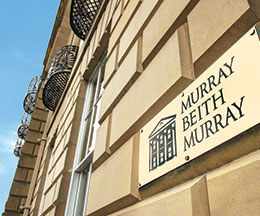Murray Beith Murray LLP is a leading Scottish private client law firm.
For 175 years we have specialised in meeting the legal, financial and administrative needs of individuals and families, family trusts, charities and private companies.
Murray Beith Murray LLP is a leading Scottish private client law firm.
For 175 years we have specialised in meeting the legal, financial and administrative needs of individuals and families, family trusts, charities and private companies.

In what is an unprecedented time, it is important that you can continue to manage your personal legal affairs in the most efficient way possible and feel supported in doing so. Lawyers throughout Scotland – and indeed globally – are thinking fast about ways in which various deeds can be finalised whilst adhering to the social distancing rules amidst the Coronavirus pandemic.
The Law Society have confirmed that the completion of Wills falls into the definition of necessary work. You should, therefore, not feel like you have to wait for any period of time to complete your Will. Indeed, we are prioritising the preparation of Wills for our clients and ensuring that these can be finalised and signed as soon as the testator is ready.
This blog considers how we can come together to ensure the completion of Wills and Powers of Attorney remains uninterrupted, at a time when we are all encouraged to stay apart.
The general rules for signing Wills in Scotland is that they must be signed at the foot of every page in the presence of one independent adult witness. The witness should ideally watch the testator sign and then add their own signature to the final page of the Will, together with the place/town and date of signing.
Given the social distancing rules, it is not always possible for an independent adult witness to be present. This is unless you happen to live with someone to whom you are not related and is not a beneficiary of your Will e.g. a flat mate.
The rules for signing English Wills create slightly more problems, as although the testator only requires to sign the final page (not every page, like in Scottish Wills), two independent adult witnesses are required.
Some of the options available are:-
Scottish Powers of Attorney all contain a Certificate of Capacity which must be signed by one of the following:-
Scottish Powers of Attorney must also be witnessed by an independent adult. The legislation that governs the signing of Powers of Attorney requires that the solicitor/doctor certifying capacity has interviewed the granter immediately before the granter signs the document.
The Law Society of Scotland have suggested the following Skype or Facetime video call procedure can be adopted to satisfy this legislative requirement if a face-to-face meeting is not possible:-
Whilst it is not essential that a Power of Attorney is witnessed because it becomes self-proving once it has been registered by the Office of the Public Guardian, it would be useful for the Power of Attorney to be witnessed by someone independent, if this is possible within the parameters of the social distancing rules.
The English equivalent of a Power of Attorney, known as a Lasting Power of Attorney, looks like a very different document and as such has its own set of signing requirements. There are no current guidelines in place but temporary measures are being considered, such as reducing the number of witnesses required and allowing video witnessing. There are hopes that a decision will be made promptly to ensure individuals who finalise their Lasting Power of Attorney without a witness being physically present do not run the risk of their deeds being invalid.
Murray Beith Murray remain committed to providing you with a full legal service during these extraordinary circumstances. If you have any questions about the issues covered here, or if you would like to discuss estate planning with our solicitors, please call us on 0131 225 1200 or complete our contact form.
